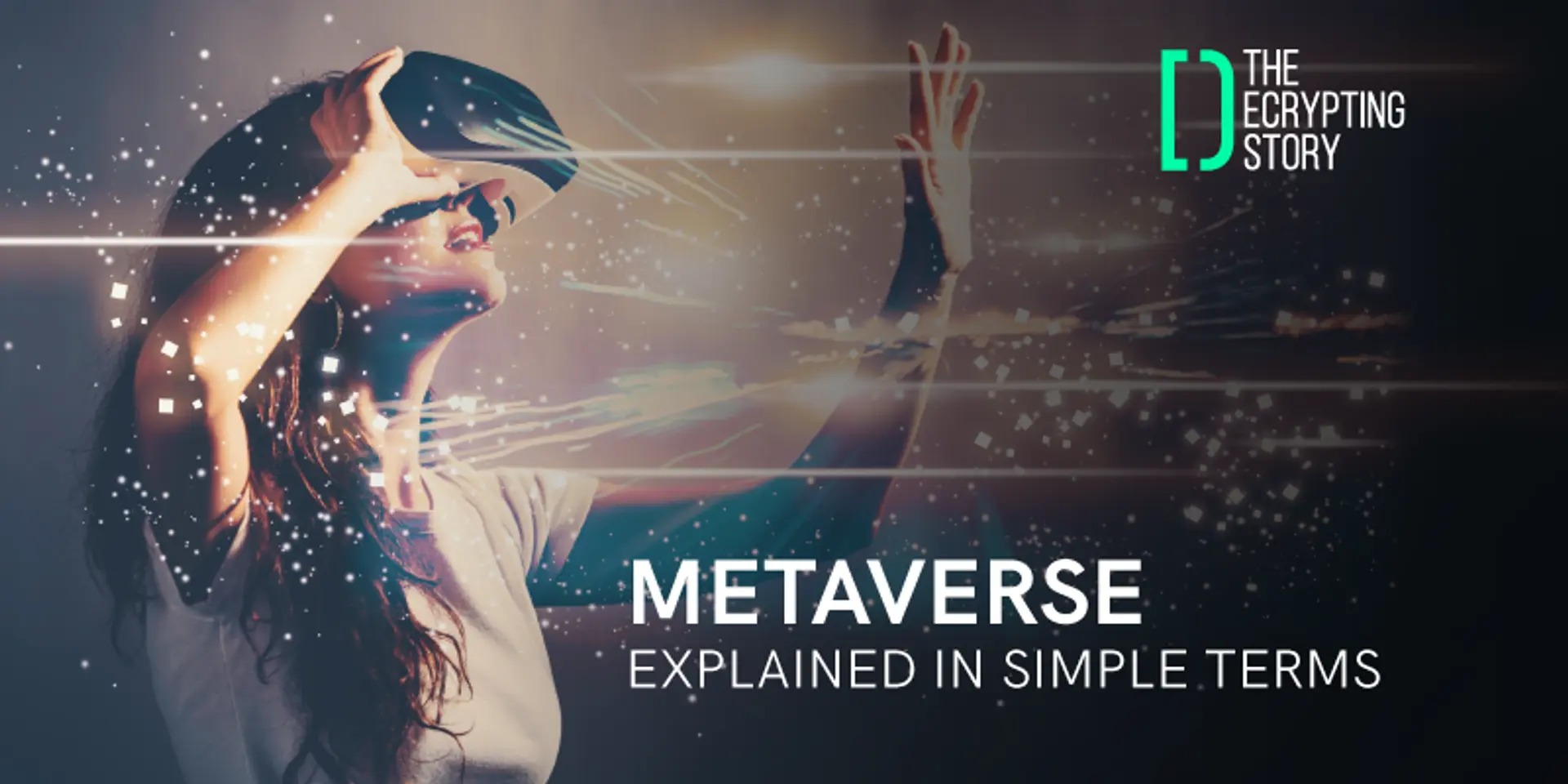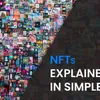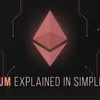What is the metaverse? How blockchain, crypto, gaming, VR, and AR are building a new way to experience the Internet
The metaverse was first mentioned in the 1992 novel Snow Crash by Neal Stephenson. In simple terms, the metaverse is an online, 3D universe that combines various virtual spaces and allows users across the globe to meet, chat, work, and play games together. Here’s all you need to know:
In July 2021, Facebook CEO Mark Zuckerberg unveiled his ambitious plan to build a metaverse.
Betting on the future of the social media giant, Zuckerberg’s move revealed that constructing a metaverse could help Facebook to go far beyond its current scope of building a set of social apps.
Not only did the announcement make global headlines and spark debate, but it also renewed the interest in the metaverse and what it really is.
Here’s all you need to know about the metaverse:
The concept was first mentioned in the 1992 science-fiction novel Snow Crash by Neal Stephenson.
In simple terms, the metaverse is an online, 3D universe that combines various virtual spaces. This 3D universe will allow users across the globe to meet, chat, work, and participate in games together.
The metaverse will be driven by augmented reality (AR) and virtual reality (VR), with users controlling their own digital avatar(s).
For instance, in the metaverse, you could use a VR headset to take a fully immersive meeting in a virtual room, with the digital avatars of other attendees sitting on the same 3D table. Then, you could log off work, and use the same headset to join your friends in a blockchain-based VR game where your group goes on an adventure to hunt for treasure.
And when you do find treasure, it is converted into cryptocurrency and added to your wallet. Whenever you’d like, you could spend your crypto inside the game to buy a rare item or a sleek outfit for your digital avatar. You could even use it to buy a piece of virtual land and rent it out for online events.
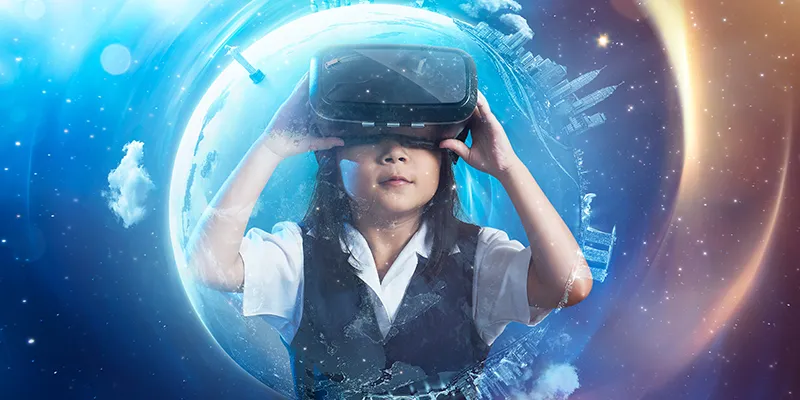
In the metaverse, you could use a VR headset to take a fully immersive meeting in a virtual room.
The pieces of the puzzle
While such a metaverse isn’t yet in existence, the pieces and platforms required to build such a world are taking shape.
Blockchain-based, metaverse-like apps such as Axie Infinity, Decentraland, and SecondLive already exist. These are online games that allow users to perform a range of actions such as play-to-earn, buy and sell virtual land, and more.
At present, these games provide the closest metaverse experience, alongside other popular virtual world-based apps such as Fortnite and Roblox.
For instance, Roblox players are not forced to follow a fixed storyline. Instead, they can attend or host meetups and other events. According to reports, people spent nearly 10 billion hours playing Roblox in the first quarter of 2021, with over 42 million users logged in every day.
The same goes for Fortnite. Instead of merely playing the game, over 12.3 million players attended Fortnite’s Travis Scott music tour virtually.
However, experts argue that any centralised entity’s vision for the metaverse – a top-down control of its virtual spaces – is the opposite of what the metaverse should be.
Jerod Venema, Founder and CEO of real-time video communication company LiveSwitch, argued in a post on VentureBeat that everything Facebook does is “inside a closed experience controlled by their engineers and admins.”
“Zuckerberg probably sees this metaverse expansion as a way to fully immerse his userbase into Facebook, and get even more data and dollars from them,” he wrote.
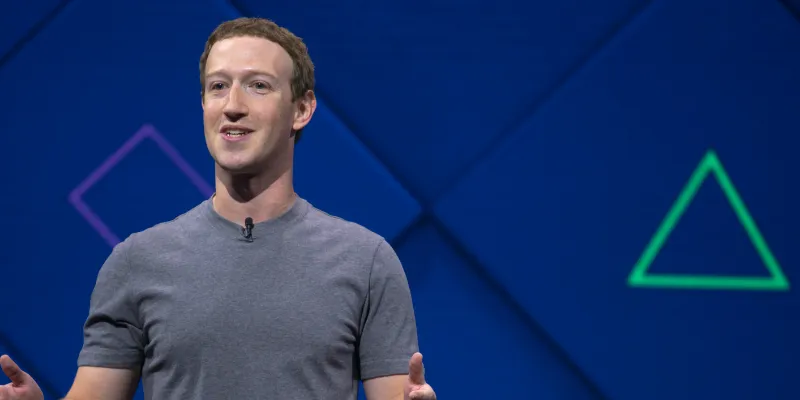
In July 2021, Facebook CEO Mark Zuckerberg unveiled his ambitious plan to build a metaverse.
Centralised vs decentralised metaverse
Like Facebook, Fortnite is run by the centralised entity Epic Games, while Roblox is run by Roblox Corporation. And with the likes of Microsoft and other centralised organisations also interested in the metaverse, it is clear that large tech giants are looking to lead the way.
“The metaverse has become the newest macro-goal for many of the world’s tech giants. It is the express goal of Epic Games, maker of the Unreal Engine and Fortnite. It is also the driver behind Facebook’s purchase of Oculus VR and its newly announced Horizon virtual world/meeting space, among many other projects, such as AR glasses and brain-to-machine interfaces and communication,” wrote Matthew Ball, Managing Partner at EpyllionCo and Venture Partner at Makers Fund, in his blog about the metaverse.
However, decentralised games such as Axie Infinity, Decentraland, and SecondLive are showing that blockchain technology is key for smaller players to truly participate in the metaverse.
Due to their open-world nature, metaverse-like platforms are turning into digital economies with various types of utility tokens and collectables.
Further, any future iteration of the metaverse will need to combine these economies, digital identities, and decentralised governance, which is only made possible by blockchain technology.

Over 12.3 million players attended Travis Scott's virtual music tour on Epic Games' Fortnite.
Importance of blockchain in building the metaverse
Imagine a scenario where Facebook, Microsoft, Google, and other tech giants connect their individual apps to build their own, discrete metaverses.
For example, a virtual world may exist where Facebook’s Oculus VR headset can be used to interact across 3D renders of WhatsApp, Instagram, and Facebook platforms.
This 3D virtual space will likely not be interconnected with Google or Microsoft’s version, and even if it is, it is highly unlikely these tech giants would allow just one of them to govern and control a common metaverse.
As such, a model of decentralised, blockchain-based governance is emerging where several users, participants, and community members work in tandem to develop and moderate the metaverse network. This is because user creation of virtual spaces, transfer of ownership of digital assets, financial transactions can all be recorded on the blockchain.
The characteristics of blockchain allow for all such transactions to be secure, public, and irreversible – thereby placing control and power into the hands of users, rather than centralised entities with private access to transaction history.
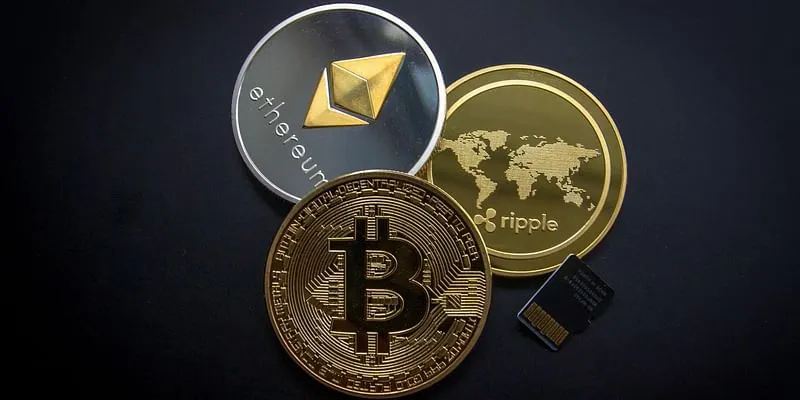
Cryptocurrency on a blockchain is more secure than in-game currency that could be lost or stolen.
Crypto and interoperability
Blockchain technology (and cryptocurrency) allows the metaverse to enable interoperability, digital proof of ownership, digital collectability of assets (such as NFTs), transfer of value through crypto, governance, and more.
For instance, if players spend a lot of time inside the metaverse, they require a reliable currency. Cryptocurrency on a blockchain is more secure than the in-game currency that could be lost or stolen if the security of the corporation running the game is compromised.
Further, as the metaverse is a collection of several projects, 3D worlds, and virtual spaces, it requires custom blockchains that can interact with each other and bring interoperability.
Decentralisation in the metaverse does not mean large tech giants are shying away from blockchain technology. In fact, some are bullish about its impact in building the metaverse.
For instance, Epic Games and Fortnite creator Tim Sweeney is a big fan of blockchain, and has come out in support of the “decentralised computing tech underlying cryptocurrency.”
In an interview with The New York Times, Sweeney said it could be possible one day to “have a tunnel” from Roblox to Fortnite and other games, connecting them all in some sort of futuristic world.
Facebook is also working to execute a plan built around a digital wallet named Novi, which lets users trade Diem – a stablecoin whose value is pegged to the US dollar. This platform features free, person-to-person transfers domestically and across borders.
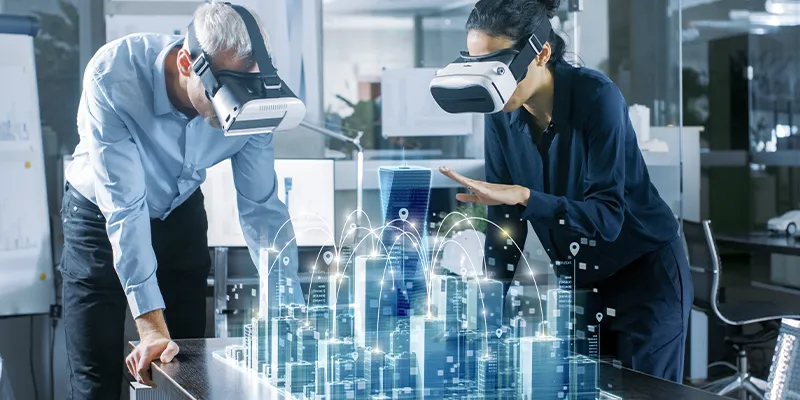
The metaverse is a collection of several projects, 3D worlds, and virtual spaces, and requires custom blockchains to bring interoperability.
Into the metaverse
Although the metaverse is still far from becoming reality, the building blocks are falling in place.
Facebook and other tech giants may see initial success with their first versions of virtual spaces. It is generally easier offering virtual spaces to existing customers on platforms than it is for a new, decentralised network to attract first-time users.
But to build and operate the metaverse in its truest sense, a slew of other technologies (besides blockchain) must advance sufficiently.
This is because the metaverse is conceptually an expansive network of interconnected, real-time rendered 3D worlds featuring continuity in terms of digital identity, objects, transactions, payments, etc. Further, it should be potentially experienced synchronously by an unlimited number of users.
According to Matthew Ball, the eight key areas which need advancement and can be thought of as a stack for building and experiencing the metaverse are:
Hardware: VR headsets, haptic gloves, industrial cameras, scanning sensors to build and interact with the metaverse
Networking: high bandwidth and decentralised data transmission across regions for persistent, real-time connections
Compute: supply of computing power to support rendering, data processing, AI, projection, etc
Virtual Platforms: 3D immersive simulations of worlds featuring a large ecosystem of developers and content creators.
Interchange tools and standards: protocols, services and engines that serve as standards for interoperability and compatibility.
Payments: on-ramps, digital currency exchanges and support of payment processes across fiat and cryptocurrencies.
Metaverse content, services, and assets: design or creation, sale, storage, and protection of digital assets connected to user data and identity.
User behaviours: observable changes in consumer and business behaviour based on trends and showing global social significance directly or indirectly related to the metaverse
YourStory’s flagship startup-tech and leadership conference will return virtually for its 13th edition on October 25-30, 2021. Sign up for updates on TechSparks or to express your interest in partnerships and speaker opportunities here.
For more on TechSparks 2021, click here.
Edited by Kanishk Singh


